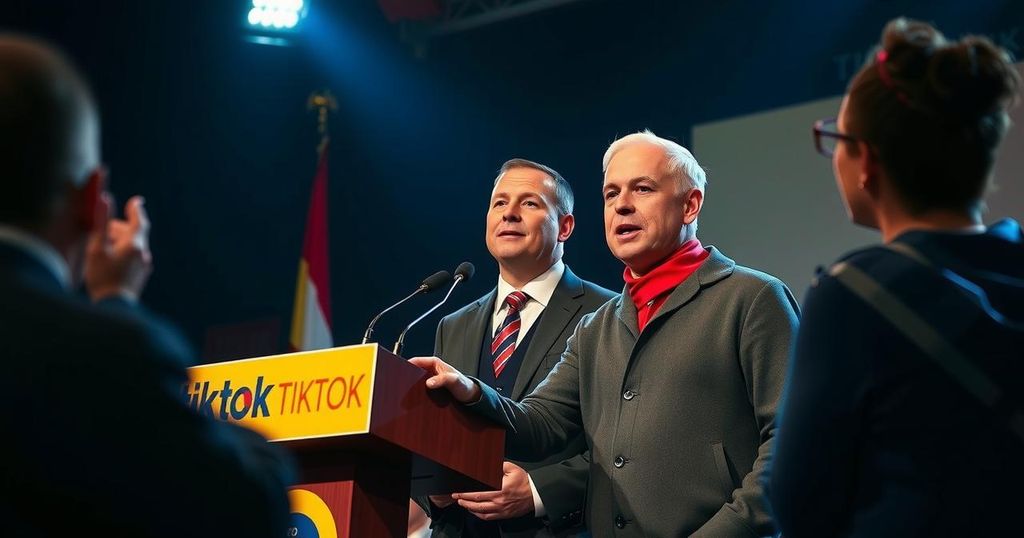TikTok Addresses Electoral Integrity: Removal of Influence Campaigns in Romania

TikTok has removed several influence campaigns that targeted Romanian voters in light of the recent presidential elections, as stated by executives during a testimony before the European Parliament. The company dismantled two campaigns aimed at manipulation and identified one linked to Kremlin-backed media. These actions highlight the platform’s role in preserving electoral integrity amidst growing concerns over misinformation.
TikTok has recently taken significant action against multiple influence campaigns that sought to manipulate the electoral process in Romania. According to statements made by company executives on Tuesday, the social media platform removed several accounts linked to these efforts, with some of the removals occurring as recently as Friday. This development came during TikTok’s testimony before the European Parliament, where it aimed to address concerns over its management of political content related to Romania’s ongoing presidential election.
The first round of elections, held last month, resulted in an unexpected victory for a candidate from an ultranationalist party, who has cultivated a substantial following on TikTok. During its presentation, TikTok officials disclosed that they had dismantled two specific campaigns aimed at Romanian voters and identified one additional campaign previously associated with the Kremlin-linked media outlet Sputnik that had made a reappearance on the platform, illustrating the challenges social media companies face in mitigating foreign influence in political processes.
This incident underscores not only the responsibilities of social media platforms in safeguarding electoral integrity but also the complex interplay between digital media and political engagement in the contemporary landscape. TikTok’s proactive measures signal a commitment to countering disinformation and protecting users from external meddling, especially in the context of sensitive political events such as national elections. Adequate oversight and transparency concerning political content remain imperative for fostering public trust in these platforms during critical electoral periods.
The issue of foreign influence in elections has gained increasing attention, particularly as social media platforms play a crucial role in disseminating information and mobilizing public opinion. Romania’s recent elections illustrate the vulnerability of political processes to manipulation through social networks. The ultranationalist candidate, who benefited from a substantial TikTok presence, has raised concerns among political analysts and regulators regarding the impacts of targeted campaigns on voter behavior. TikTok’s response to the allegations of inadequate handling of political content emphasizes the need for social media companies to implement stricter controls and enhance their accountability to combat misinformation effectively.
In conclusion, TikTok’s recent actions to dismantle influence campaigns during Romania’s elections reflect a growing recognition of the importance of maintaining electoral integrity in the digital age. By removing accounts tied to disinformation efforts, including those associated with foreign entities, the platform aims to demonstrate its commitment to responsible content management. This scenario underscores the ongoing challenges that social media platforms face in ensuring fair political discourse and maintaining user trust during critical electoral events.
Original Source: www.politico.eu








